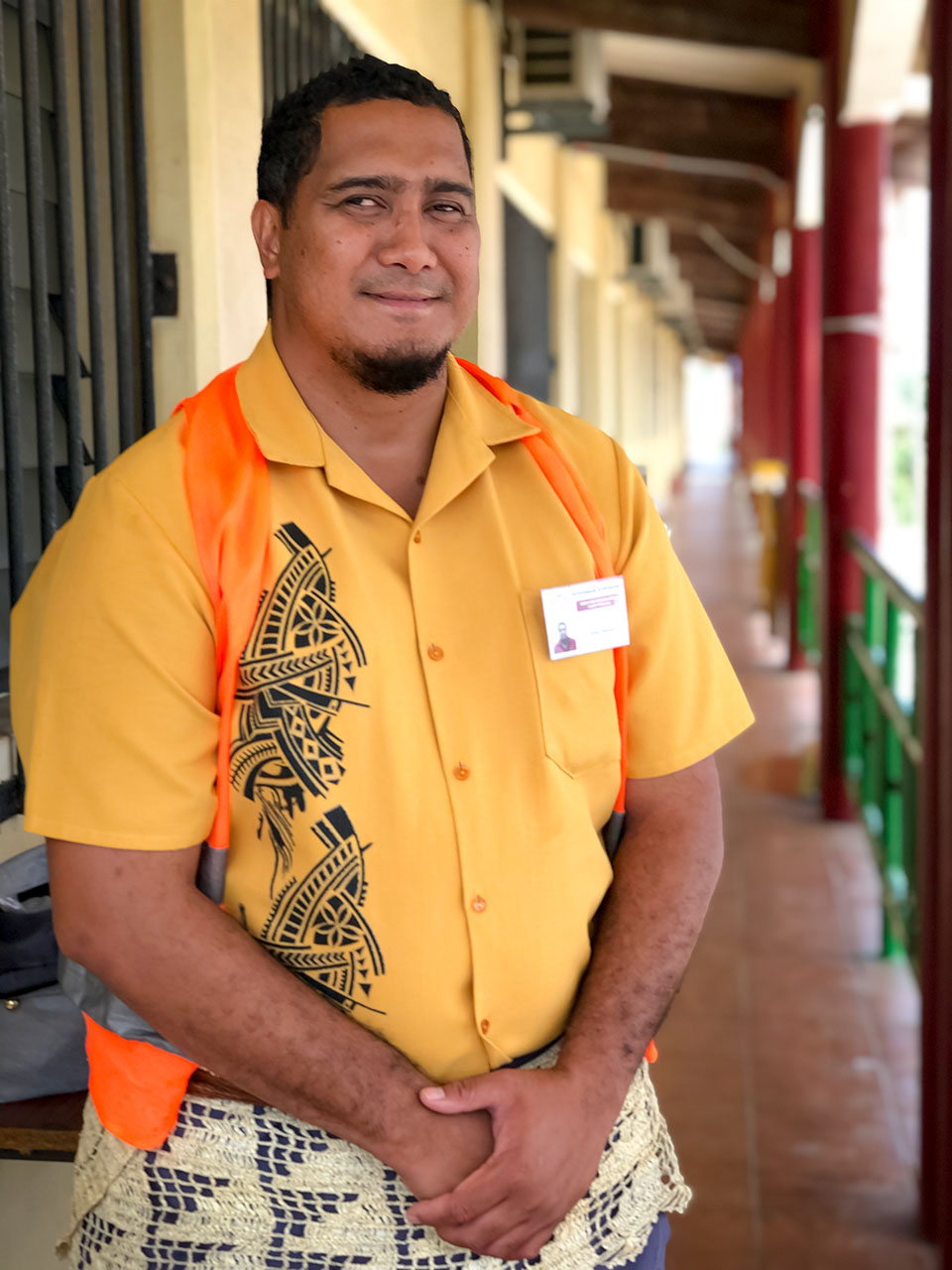Take Five: “Bringing up women’s voices [is] not only important to their family, it is also important to the community and Tonga as a whole.”
Date:
Interviewer: Montira Narkvichien
Carter Pasikala, 35, is among 27 enumerators of the Tonga Statistics Department tasked with doing the first survey on women and environment. The 31 October-24 December 2022 survey, supported by UN Women, covers 2,541 households on the main island of Tongatapu and outlying islands. It details how women and men manage natural resources, deal with hazards and the consequences of climate change, and other challenges. Tonga was hit in January 2022 by a tsunami caused by a volcanic eruption.

In October 2022, UN Women did the first training to prepare the enumerators for the survey. What new techniques did you learn?
I didn’t know about gender and the relationships [of women and men] with the environment. … It helped me get prepared before going out to the field. The useful techniques I learned are the verification method, which requires respondents to sign their names, which helps with the survey verification.
What are your responsibilities in this survey?
I am covering two of the most remote islands of Tonga to ensure we have the voices of women and men there. I went to Niuafo’ou, … the farthest-north island of Tonga. I went there by plane and stayed there for one and a half weeks to complete the interviews of 64 households, which is 120 individuals, 60 male and 60 female respondents. And then I went to a remote island in Ha’apai to interview 30 households, which is 60 individuals, 30 males and 30 females. I went there by ferry and spent one and a half weeks to complete the surveys.
What are most intriguing facts that you have found in your survey?
The people on these two remote islands are still panicking from the volcanic eruption back in January this year. And during this year, we came across depressions with thunderstorms, heavy rain and lightning. People are still thinking that these thunderstorms are from the volcanoes, but instead it’s from the low depression or the bad weather. But now [they’re] getting to listen more to the radio and the internet as well as weather forecasting, [so] they know for sure that the thunderstorms are from the bad weather but not from any volcanic activity on the island of Tonga. People understand more about how climate change is affecting them in every way.
Do you think that will change the way they respond to natural disasters?
People are now well-prepared with food, water. They know the direction, where to evacuate to and the safest place to go. But before the volcanic eruption in January, most of the people were not aware of what to do, the right thing to do, and the right place to evacuate to.
How will your survey help Tonga as the country progresses towards growth and recovery after COVID-19 and the natural disasters?
I know this survey is very helpful and important to Tonga. Bringing up women’s voices [is] not only important to their family, it is also important to the community and Tonga as a whole. Because their voices will be helpful for [the] Government’s decision-making process in the near future in regards for preparing for disasters. It is very important to hear women’s voices in the survey and consider their needs.
UN Women is grateful to the government of Australia for their generous contribution to the Building Back Better project. The project supports the production and use of gender data on the Pacific and Southeast Asia.